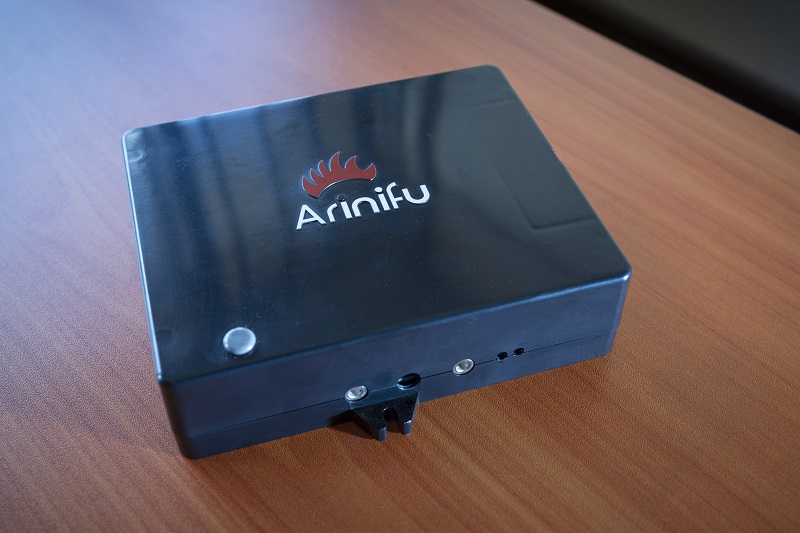Kenyan startup Arinifu has developed the Smart Brooder, an environmental control device which uses sensors to ensure conditions in chicken brooding spaces are kept at optimal levels.
The Arinifu team has chicken farming experience, and built the Smart Brooder in response to issues faced raising poultry. Brooding involves supplying chicks with supplemental heat, which during the first weeks of a chick’s life is more important than food.
Yet ensuring efficient and constant supply of this vital heat can be a challenge for farmers, especially in rural areas, something Arinifu is trying to tackle.
“Our vision is to enhance poultry farmer output by providing access to new, affordable and efficient technologies. We work with the farmers to understand the challenges they face then tap into technology for solutions. At the end of it, we want them to receive better returns and ultimately better standards of life,” co-founder George Chege told Disrupt Africa.
The Smart Brooder was designed to be easy to use by people from all walks of life, and was built with a custom algorithm. An environmental control device, it is composed of a number of sensors that take readings throughout the brooding space and relay the data to a chip. This chip is programmed to determine the age of the chicks and regulates the conditions in the brooding space accordingly.
With the chilly walks to the brooder at 4am in mind, GSM/SMS technology has been incorporated to ensure farmers are alerted in the case of any faults, ensuring peace of mind. Chege said the Smart Brooder is infinitely better than its closest competitor – charcoal-based heating systems, monitored visually. The startup is targeting its product at small scale farmers.
“Other environmental controllers in the market cater to the really large scale farms, but we differ. Our competitive niche lies in the small scale farmers, mainly organic farmers,” said Chege.
To successfully target this market, Arinifu has done away with unnecessary features to keep the device simple and ensure costs are low, and has been rewarded by strong initial uptake of its device.
“We currently have 20 customers and 40 users in our paid pilot. With these systems being very new to farmers in Kenya, we have to take time to explain to them and get over their fear of unknown technology,” Chege said.
That said, the startup is confident of further growth, and plans to expand into other African countries in due course.


